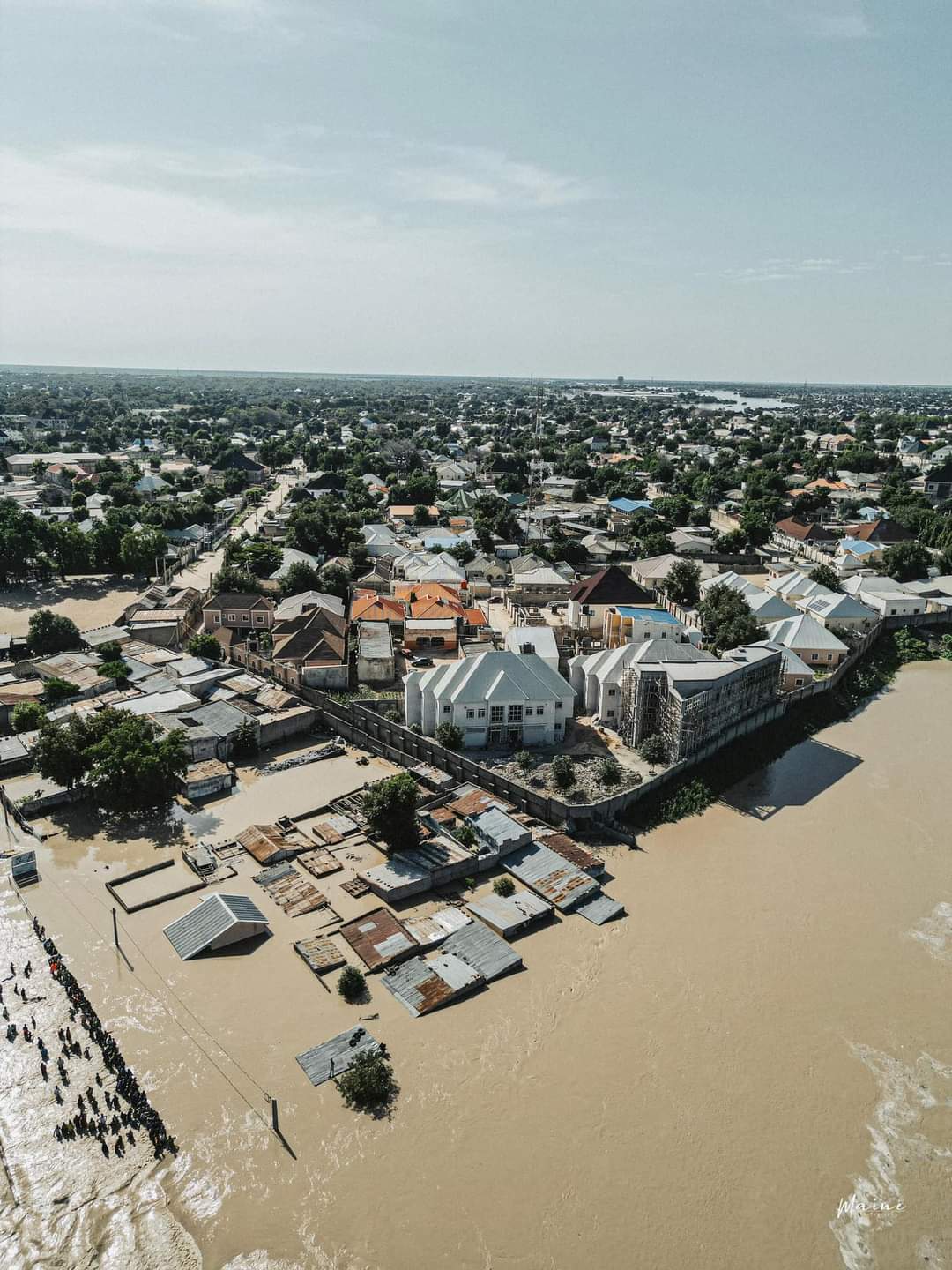Maiduguri’s once-bustling streets have been transformed into channels of despair following unprecedented flooding that struck the city in late August 2024. This disaster has claimed over 30 lives, displaced more than 400,000 residents, and severely disrupted economic activities.
The tragedy highlights not only the force of nature but also the grave failures in infrastructure management and governance that allowed this catastrophe to unfold.
The collapse of the Alo Dam, a critical failure that precipitated the flooding, was not an unforeseen event. Since 2015, multiple reports had warned about the dam’s deteriorating condition. Despite this, between 2018 and 2024, the government allocated N231.07 million for repairs, awarding contracts to six different firms. Yet, the promised repairs were never effectively carried out. Experts had flagged the dam’s weakening capacity due to structural decay and poor management, but these warnings were ignored.
Further compounding the crisis were Maiduguri’s outdated and clogged drainage systems. Long neglected and underfunded, these systems proved inadequate in handling the torrential rains. Planned upgrades to this critical infrastructure were either delayed or never completed. As floodwaters surged, it became evident that Maiduguri was ill-prepared for such a disaster, making the crisis both foreseeable and preventable.
The flood’s impact has been catastrophic:
– Fatalities: Over 30 lives lost, as confirmed by reliable sources, including the BBC.
– Displacement: More than 400,000 residents displaced from their homes.
– Economic Disruption: Approximately 5,000 homes and over 1,200 businesses, including the famed Monday Market, were severely affected. Economic losses are estimated in the billions of naira, with traders facing months, if not years, of financial hardship. The agricultural sector also suffered, with extensive farmland destroyed, exacerbating food insecurity in an already vulnerable region.
Expert Insights on the Disaster
Experts have criticized the combination of poor urban planning, climate change, and government inefficiency:
Professor Ibrahim Dogo, an urban planning expert at the University of Maiduguri, noted, “The structural failures we’re witnessing are not isolated; they reflect a broader crisis in Nigerian urban infrastructure. Climate change has intensified extreme weather events, but our infrastructure remains outdated.”
Dr. Zainab Mohammed, an environmental scientist, emphasized the need for proactive disaster management: “While climate change worsens flood severity, our lack of preparedness is a critical issue. Effective early warning systems, proper urban planning, and efficient drainage are essential for mitigating these disasters.”
Local authorities’ responses to the disaster were sluggish. Initial rescue efforts were delayed, leaving many stranded. Relief materials were distributed late, exacerbating the suffering of those affected. Investigations have revealed mismanagement of emergency funds and poor coordination among government agencies, complicating rescue and relief operations. Community leader Mallam Musa Ali voiced his frustration, saying, “We’ve warned the government about the dam and drainage issues for years, but no action was taken. Now we’re facing the consequences of their negligence.”
Lessons from The Legendary Mansa Musa
The legendary Mansa, a pioneering civil engineer and revered figure, foresaw the consequences of neglecting infrastructure. In the 1970s, he turned down the contract to build the Alo Dam, predicting its failure within 30 years due to design flaws. His warnings were ignored, and the dam’s collapse has vindicated his foresight. Mansa’s legacy underscores the importance of adhering to expert advice, maintaining infrastructure, and ensuring effective governance to prevent such disasters.
The Human Stories: Faces of the Flood
Personal stories from the disaster reveal the human cost: Fatima Yusuf, a single mother of three, lost her home and small shop in the Monday Market. “I have nothing left,” she said, tears in her eyes. “The flood took everything—my business, my home, my children’s future.”
Mohammed Ibrahim, a farmer, lamented, “I’ve worked this land for 15 years. Now it’s gone. How do I feed my family?”
These are not just statistics; they are real people whose lives have been upended by a preventable disaster.
Rebuilding and Reform: A Call for Accountability
Vice President Kashim Shettima, during his visit to Maiduguri, labeled the flood as the worst the city has faced in over three decades. While aid and relief were promised, addressing the root causes of the disaster remains critical. To prevent future tragedies, both state and federal governments must:
1. Conduct Immediate Infrastructure Reviews: Upgrade and repair critical infrastructure, including dams and drainage systems.
2. Ensure Accountability: Investigate the mismanagement of funds and hold responsible officials and contractors accountable. Legal action must be taken against those whose negligence contributed to the disaster.
3. Enhance Disaster Preparedness: Develop and implement comprehensive disaster preparedness and response plans, incorporating best practices from countries with successful flood management systems.
4. Engage Communities: Involve local communities in disaster planning and response efforts to ensure their needs are addressed.
Maiduguri’s disaster is a harsh reminder of the consequences of systemic failures and the urgent need for reform. The city deserves more than temporary relief; it needs a commitment to long-term planning and accountability. Only through comprehensive action can Maiduguri ensure that such a catastrophe does not repeat itself. Until then, the floodwaters may recede, but the scars of this disaster will remain deeply etched in the lives of Maiduguri’s residents.
Sani Saidu Muhammad, Writes From the Centre for Information Technology and Development and can be reached via sanisaeed366@gmail.com


